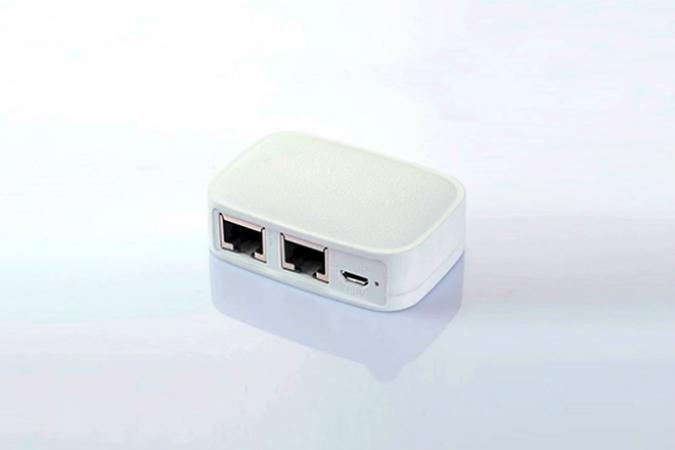
A significant amount of people on Reddit have questioned Anonabox’s claims that the hardware was custom-made. One user even found a very similar-looking router that’s being sold for under $20 on an Alibaba site dubbed aliexpress.com. That router doesn’t feature any Tor-centric privacy functions. Meanwhile, the Anonbox costs $45.
In a Reddit AMA, Anonabox developer August Germar posted the below comment. In it, he acknowledges that initial claims indicating that the Anonabox consists of custom hardware were not accurate.
“So my understanding is that the main issue is I used the term from ‘scratch’ when the device has many standardized components and resembles closely other hardware that currently exists right,” Germar asked. “The truth is we can make Tor routers out of a lot of existing hardware, but I thought it would be helpful to have a standardized piece of hardware to do it on.”
It will be interesting to see whether the project gets taken down, and/or if backers decide to pull their funding back as a result of this backlash.
To this point, Anonabox has raised over $570,000 via Kickstarter.
Original story
Privacy is hard to come by on the Internet, and some folks out there are just not satisfied with that reality.
One firm, dubbed Anonbox, has created a router of the same name that, it claims, is the device you should use if you want the “best and most secure way to access the Internet anonymously,” according to the project’s official Kickstarter page.
The Anonabox allegedly encrypts all Internet activity without requiring you to download software, create any sort of log-in information, or do any configuration. There’s no need to register for any sort of services either. The setup process consists of just plug-and-play.
With this open source router, Anonabox purports that you’ll be able to use popular services like Skype, Safari, and others without having to worry about whether your online activities are anonymous or not.
Anonabox notes that as more and more people start using the Tor network, there are bound to be some folks who are unaware of what steps they should take to make sure that they don’t accidentally leak out any information about themselves while surfing the Web. This problem, the company claims, is one that’s solved by the Anonabox, due to its simplicity, and ease of use.
The router’s creators were inspired to create the Anonabox by reports of Arab Spring protesters being cut off from Twitter by the government there.
“How about if we were to actually build that anti-censorship box we were just talking about and mail it out to people,” Anonabox’s creators wondered when they were thinking of how to create such a device. “Little did we know, it would take over four years, and a lot more tacos and beer, to create a device with the security, speed, functionality and easy-of-use that is the anonabox.”
As an added bonus, the Anonabox is pretty small, allowing you to conceal it just about anywhere.
So far, the Anonabox Kickstarter campaign has been fabulously successful. While the developers set an initial funding target of $7,500, the campaign has received over $85,000 in contributions as of this writing. Plus, that’s with 29 days to go.
If you order an Anonabox now by pledging $45 or more, you should get it sometime in January 2015. However, keep in mind that the page notes this as an “estimated delivery” time-frame.
You can learn more about the Anonabox here.
Editors' Recommendations
- How to change your router’s Wi-Fi password
- You’re putting your router in the wrong spot. Here’s where to put it instead
- Oh great, new malware lets hackers hijack your Wi-Fi router
- How to update your router firmware
- This Wi-Fi mesh router will keep your kids safe at all times


